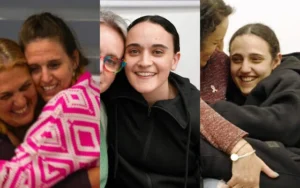THE MESSAGE: Reformation of Madrasah in Nigeria

By Femi Abbas
Monologue
Today’s article is a follow up to that of last Friday as demanded by many dignified readers of this column around the world. Yours sincerely could not resist such a demand because it is, only through the readers’ recognition that a writer can become a signpost of meaningful hope for the world of today and that of tomorrow.
Chain of Events
Perhaps, no platform provides a better opportunity for the explanation demanded by readers, in today’s article, than a historic publication of an edition of ‘The News’ magazine in 1999.
The Publication
At the twilight of the 20th century, in 1999, the management of ‘The News’ magazine, , thought of putting together, in a centenary compendium, the most prominent 100 Nigerian men and women of the 20th century. The publication was entitled ‘PEOPLE IN THE NEWS 1900-1999: A Survey of Nigerians of The 20th Century’.
Contributors
Like an encyclopedia, that compendium attracted some prominent writers in the country, who were approached by the publishers of ‘The News’ Magazine, to contribute to its publication from different perspectives.
Most of those approached were famous Nigerian newspaper editors, seasoned columnists and versatile (non-journalist) writers. They were selected for the historic assignment, based on their impeccable experiences and professional credibility.
As a columnist and Deputy Chairman of the Editorial Board of Vanguard newspaper at that time, yours sincerely was one of those selected as contributors. And, the two personalities assigned to me, to write about, were the late Shaykh Adam Abdullah Al-Ilory and the late Shaykh Abubakar Mahmud Gumi. The latter was the former Grand Qadi of Northern Nigeria. What qualified Shaykh Adam Abdullah Al-Ilory as one of the most prominent 100 Nigerians of the 20th century was his revolutionary reformation of the primordial Arabic schools (Madrasahs) in the South West of Nigeria.
The Compendium
The 498 page historic compendium was publicly presented by ‘The News’ publishers with pump and pageantry at the Nigerian Institute of International Affairs, in Lagos, in the same year (1999). That compendium can be called Nigeria’s 20th century ‘Hall of Fame.
Who is Shaykh Adam Abdullah Al-Ilory?
To know who this colossal personality was, please, read below, what I wrote about him and his established Institution, as published in the mentioned centenary compendium. The writing went thus:
“To Muslim communities of West Africa, two names: (Shaykh Adam Abdullah Al-Ilory and Markaz) have always been synonymous and often used interchangeably. For a long time, only a few people knew that Markaz was a name of an Institution while Shaykh Adam Abdullah Al-Ilory was the name of its founder. Both names jointly symbolize revolution, not only in the method of propagating Islam in West African sub-region but also in entrenching Arabic, in the heart of those Muslims, as the divine language of the Qur’an.
His Profile
Before his demise in 1992, Shaykh Adam Abdullah Al-Ilory was both an Islamic scholar of international repute and a revolutionary teacher of teachers. The quality of over 60 internationally recognized books he authored and published continues to speak of him posthumously today.
The Citadel called Markaz
As the famous Centre for Arabic and Islamic Studies, (Markaz) in Agege, Lagos State, continues to wax stronger, there is a vivid testimony to the indelible legacy which the ingenuously cerebral personality of Shaykh Adam left behind.
Reminiscence
The great Institution of learning called Markaz was established in Abeokuta, the capital city of today’s Ogun State, in 1952, by Shaykh Adam Abdullah A[-Ilory. It was through that Institution that he introduced
unprecedented modernity and standardization into the study of Arabic and Islamic learning in West African sub-region, starting from Nigeria.
Scholarship
Perhaps no Nigerian 20th century Muslim scholar, dead or alive, has had such a profound impact on West African Muslim communities in terms of Arabic scholarship and Islamic propagation as Shaykh Adam. Before he established Markaz, there were clerics and there were Madrasahs, no doubt. But such clerics and their Madrasahs only operated within a very narrow scope as the teaching methodology used for the students under their pupilage was very crude, archaic and anachronistic.
The Reformation
Shaykh Adam, who also passed through that pseudo servitude system, under certain Qur’anic teachers, at his early life, noticed with concern, the anomaly in that archaic system and resolved to change it by the grace of Allah when he grew up and possessed the wherewithal. However, to succeed in that seemingly queer venture, he realized that he needed to equip himself adequately with necessary education and not mere literacy. Therefore, after moving from scholar to scholar, in search of relevant knowledge that could assist him in fulfilling his dream, he decided to travel abroad for acquisition of deeper knowledge.
Academic Sojourn
On his arrival in Cairo, in the early 1940s, Sheikh Adam saw with admiration, a thorough administration of Madrasahs and he began to dream of establishing one of the like, on his return to Nigeria. He, therefore, studied the Egyptian curricula of education and teaching methodology at the elementary and secondary school levels in preparation for the realization of his dream.
Back in Nigeria
On returning home at about the age of 30 years, in 1947, Shaykh Adam worked briefly as a missionary under Ansar-ud-Deen Society of Nigeria to enable him settle down financially in preparation for the realization of his long term dream. In a short while, his burning desire to reform Madrasah system in Nigeria spurred him to start planning for the establishment of a mordern Madrasah that would serve as a model for others. That Madrasah was named Markaz.
Thus, with just meager financial resources but relentless determination, the great scholar started his dreamt Madarasah in Abeokuta, now Ogun State, on April 16, 1952, with just 19 pupils and four teachers including Shaykh Adam himself. However, the founder’s foresight would not allow Markaz to remain in Abeokuta for long. He moved the Institute to Agege in 1955.
The Uniqueness of Markaz
The uniqueness of Markaz is not to be seen only in the quality of education taught to the students therein. The modern teaching methodology and reformation with which the Institute is characterized confirm that uniqueness. For instance, it was in Markaz that the use of chalk and blackboard for teaching Arabic and Islamic education was first introduced in the Southwest of Nigeria. Hitherto, the teaching instruments were ramshackle wooden slates called ‘wala’ and local ink called ‘tada’. It was in Markaz that a curriculum was first introduced, which classified studies into subjects while pupils were distributed into classrooms according to their levels.
It was in Markaz that pupils of Arabic and Islamic education first wore uniform and sat on chairs rather than bare floor even as those students were writing with pencil or pen in notebooks.
It was in Markaz that written examination was first conducted as a means of assessing and promoting pupils from class to class while certificates were issued to successful Madrasah graduates as a measure of their level of education.
It was in Markaz that such facilities as dormitories, library, printing press and clinic were first provided for students.
The effect of all these was aimed at wiping off the sweat of inferiority complex from the foreheads of those students even as it served as an impetus of hope for them in respect of the future. At that time, how else could the Madrasah system have been reformed in Nigeria?
Antagonism
Incidentally, as characteristic of black Africans, Shaykh Adam was viciously confronted with implacable hostility by some parochially envious local clerics, who thought that teaching students such ‘strange’ subjects like syntax, morphology, logic, semantics, philosophy, geography, History, mathematics, and literature, with which they were not familiar could put them at a disadvantage. And, since they saw that revolution as a cultural affront, they resolved to resist it, by all means. Their adopted instruments of resistance were intimidation and frustration. That hostility became aggravated when Shaykh Adam added a Jum’at Mosque to Markaz and started delivering weekly sermons in Arabic language and translating them into Yoruba language for thorough understanding by his congregation. But then, relying on a formidable protection of Allah, the courageous scholar remained undaunted even as he was indifferent to the unwarranted hostility of those clerics.
First Graduation Ceremony
With the first graduation ceremony of the primary section of Markaz in 1957, however, which many people watched with admiration and encomiums, Sheikh Adam won a landmark victory for his extraordinary revolution that eventually turned Markaz into a Citadel of knowledge. Following that graduation, some hitherto malicious local Alfas had to swallow their pride by shelving their envy and by enrolling in Markaz, as students, to also improve their knowledge by undergoing a new, modern tutelage in a scientific teaching methodology that could qualify them to become as famous as Shaykh Adam.
Some of those local Alfas came from various parts of Nigeria as well as neighbouring countries like Benin Republic, Togo, Ghana, Cote de Voire, Guinea, Mali, Burkina Faso, Cameroon as well as Sierra Leone, Liberia and Senegal.
After graduation, all of them went back to their home countries to establish similar Institutions in their domains under the supervisory umbrella of Markaz. That may explain the reason why Almajiri menace is not as rampant in the South West of Nigeria as it is in the North.
Products of Markaz
Today, thousands of products of Markaz and those of the affiliate Instituteions are University graduates in various fields of discipline. Scores of them are highly placed in their professional callings.
Today, Markaz can proudly regale in the galaxy of its alumni who are holding sway in virtually all fields of human endeavour. Among those who graduated from Markaz with exemplary laurels are Professors like Ishaq Olanrewaju Oloyede, a former Vice Chancellor of the University of Ilorin and now the Registrar of JAMB; Professor Abdur-Razak Deremi Abubakar, a former Vice Chancellor of Al-Hikmah University, Ilorin, Kwara State; The late Professor Shuaib Uthman, a former Deputy Vice Chancellor of Usman Dan Fodio University, Sokoto; Professor Murtada Aderemi Bidmus, a former Dean of the Faculty of Education, University of Lagos, to mention, just a few. There are many other Markaz alumni with tertiary degrees in various academic and non-academic lines, who are playing leadership roles in various sectors of Nigeria today. Among them are professionals like Medical Doctors; Lawyers; Engineers; Ambassadors; Journalists (including yours sincerely), Architects; Accountants; Bankers; Pharmacists; Surveyors; Civil Servants; Business men and women as well as Secondary School Principals and teachers of high repute. Today, they are all proud of Markaz as much as Markaz is proud of them. Alhamdu Lillah!
League of Imams and Alfas
As a way of advancing the course of Muslim unity and elevating the status of the Muslim clerics in the South West of Nigeria, Shaykh Adam initiated the formation of the League of Imams and Alfas to serve as a common forum of unification for the Imams and Alfas in the South West of Nigeria. Following the establishment of that League, in 1963, he was unanimously nominated by consensus to be the President-General, but he turned it down and rather preferred to serve as Seretary-General, the position he held in that League, till his demise in 1992.
Translation of the Qur’an
Shaykh Adam was the initiator and leader of the ten man team that translated the Qur’an from Arabic into Yoruba language. Some of the graduates of Markaz were also in that team. And, the circulation of that translated Qur’an was personally supervised by him.
Publications
As an author of scores of scholarly books and booklets, Shaykh Adam was internationally acknowledged as a towering Islamic scholar whose contribution to Islamic scholarship and propagation in West Africa was unequalled in the 20th century. Some of his books were used in some Universities in the Arab world. And in writing all those books, he used no language other than Arabic.
Awards
Shaykh Adam was the first black African to win the coveted Egyptian intellectual Gold Medal Award in Arabic Literature, which was presented to him by the then President Hosni Mubarak of Egypt in 1989. He had earlier, in 1975, won the Mauritanian International Award for Islamic Scholarship, which was presented to him by the then President Moukhtar Ould Dada of that country.
Conclusion
Now, given the above historical analysis, which parent will not be proud to see his children passing through a citadel like Markaz? God bless the readers of this column!



